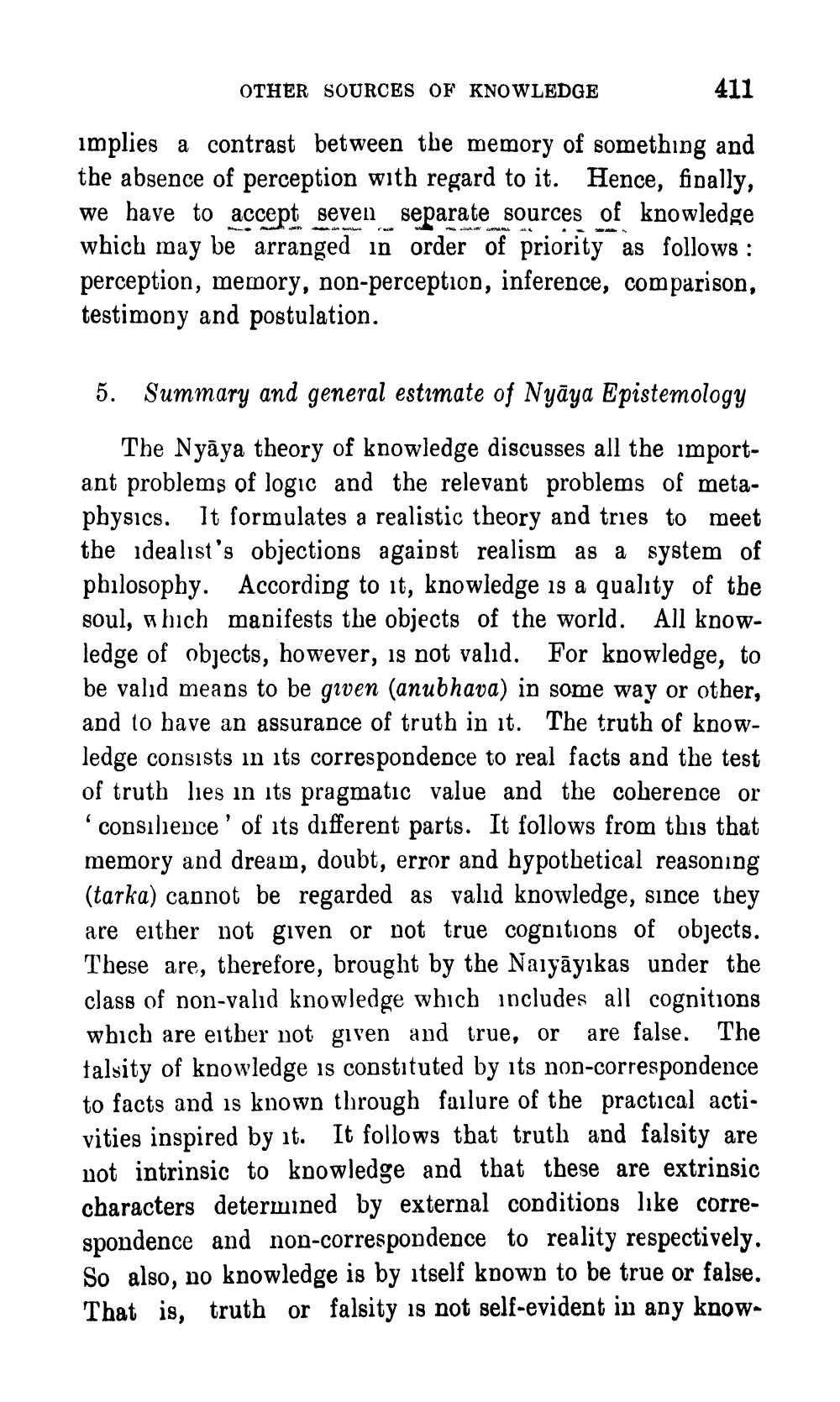________________
OTHER SOURCES OF KNOWLEDGE
411
implies a contrast between the memory of something and the absence of perception with regard to it. Hence, finally, we have to accept seven separate sources of knowledge which may be arranged in order of priority as follows : perception, memory, non-perception, inference, comparison, testimony and postulation.
5. Summary and general estimate of Nyāya Epistemology
The Nyāya theory of knowledge discusses all the important problems of logic and the relevant problems of metaphysics. It formulates a realistic theory and tries to meet the idealist's objections against realism as a system of pbilosophy. According to it, knowledge is a quality of the soul, a hich manifests the objects of the world. All knowledge of objects, however, is not valid. For knowledge, to be valid means to be given (anubhava) in some way or other, and to have an assurance of truth in it. The truth of knowledge consists in its correspondence to real facts and the test of truth lies in its pragmatic value and the coherence or 'consilience' of its different parts. It follows from this that memory and dream, doubt, error and hypothetical reasoning (tarka) cannot be regarded as valid knowledge, since they are either not given or not true cognitions of objects. These are, therefore, brought by the Naiyāyikas under the class of non-valıd knowledge which includes all cognitions wbich are either not given and true, or are false. The falsity of knowledge is constituted by its non-correspondence to facts and is known through failure of the practical activities inspired by it. It follows that truth and falsity are not intrinsic to knowledge and that these are extrinsic characters determined by external conditions like correspondence and non-correspondence to reality respectively. So also, no knowledge is by itself kpown to be true or false. That is, truth or falsity is not self-evident in any know




